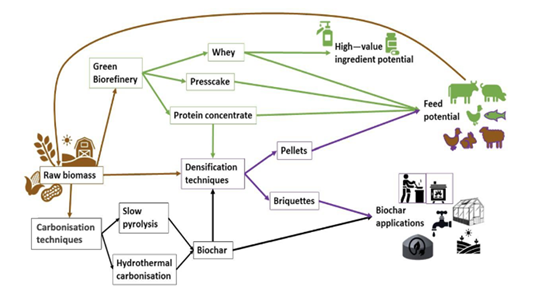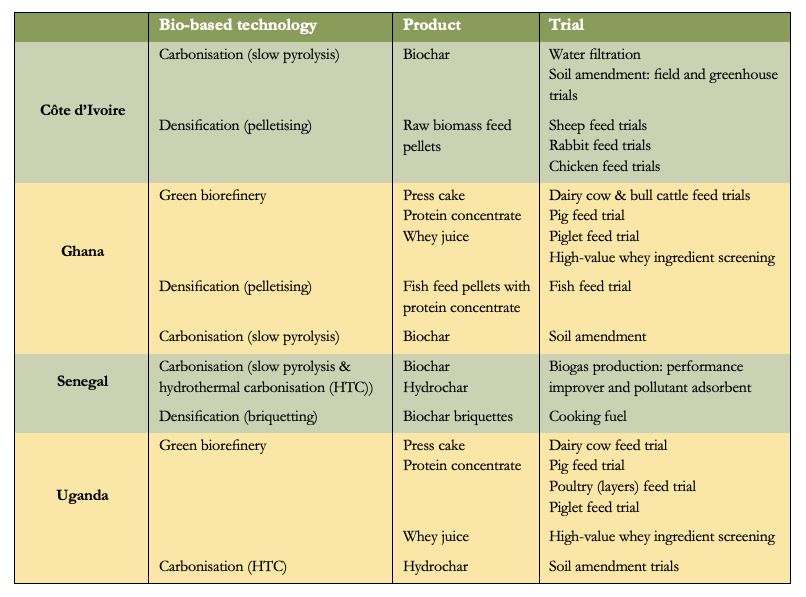First BIO4Africa field tests make good progress
Four of 22 BIO4Africa product trials kicked off in the initial reporting period. A busy time lies ahead for the testing sites.
Six months have passed since the first of 22 BIO4Africa application trials began investigating the performance of selected bio-based products in the field. Throughout the trials, 12 bio-based products will be produced and tested at sites in Côte d’Ivoire, Ghana, Senegal and Uganda.
Munster Technological University (MTU) and Kabarole Research and Resource Centre have now completed the first of three reports documenting the trials’ progress.
“The preliminary results of the first trial phase show positive outcomes,” says Tracey O’Connor, project manager at MTU.
Influence of local conditions
Four trials began in the initial reporting period, among them soil amendment trials with biochar in Ghana and Côte d’Ivoire, a cooking fuel trial with biochar briquettes in Senegal, and sheep feeding trial with raw biomass pellets in Côte d’Ivoire.
“The purpose is to use local and novel adapted technologies so BIO4Africa partners and farmers can compare outcomes under local conditions. Besides the technologies and feedstocks used to make the products, soil type, climate, farm practices, livestock breeds and crop varieties all have an influence,” Tracey explains.


Sheep trial complete
In Côte d’Ivoire, the first livestock feeding trial with raw biomass pellets for sheep is already complete. The biomass used for the pellets included local plants Cajanus cajan (pigeon pea) and Leucaena leucocephala. Both plants contain phenolic compounds such as mimosine, with anthelmintic properties that can support intestinal parasite management.
An early analysis indicates a positive impact on sheep weight gain and health, including parasite load and lamb mortality. These and published results from other trials will be included in the second trial progress report in early 2024.
At least 300 farmers, farmer groups and other local community actors are expected to be involved in the trials across the four countries – including pastoralists and women farmers.